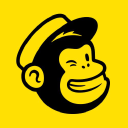On Starting A Made-To-Order Custom Fit Eyewear Business
Hey, I’m Sahir Zaveri, Co-Founder, and CEO of King Children. King Children is a path-breaking technology platform enabling the future of eyewear. With limitless design possibilities and an incredible retail experience, our platform captures the imagination like no other.
The best part: every frame we ship is produced with zero waste.

What's your backstory and how did you get into entrepreneurship?
I spent every summer from when I was 12 until I went to college at a manufacturing R&D facility. I was fascinated by the idea of making things and understanding new product design and production technologies. As I grew older I knew that advanced manufacturing technologies and changing the way we make the products we use was my calling.
figure out who to take advice from, don’t take advice from someone just because they are successful, their path to success and your path to success could be very different.
While in college I started a business with my current co-founder and a couple of other friends offering professional photography services to small businesses and organizations at affordable prices by partnering with photography students in art school. That initial experience made me certain I wanted to do something entrepreneurial later in life. I spent the following summer doing research on applications of 3D printing technology along with my co-founder and a few other friends, it turned out to be the seed of what eventually would become King Children. At that time I realized that 3D printing would dramatically change the physical world around us and I wanted to be at the forefront of driving that change.
After graduating I got an offer to work at a private equity firm focused on emerging markets and decided it was a good opportunity to build a strong network and gain valuable experience. On the side, I continued to research applications of 3D printing and the idea of using 3D scanning technology to produce customized consumer products. As I started by 3rd year at the PE firm I was working a few different things happened that led me to feel it was the right time to leave and pursue the building blocks I had started working on during my time in college. In my job at the PE firm I had recently been promoted and there was a broader conversation around my future at the firm and what area I wanted to focus on, that conversation gave me a chance to step back and I quickly realized that I was actually ready to take the plunge into entrepreneurship as a full-time job. At the same time, there had been meaningful advancements in 3D printing and scanning technology that served as an important enabler to realizing the potential business I had conceptualized.
Take us through your entrepreneurial journey. How did you go from day 1 to today?
I spent the first two years of my entrepreneurial journey doing R&D with my co-founder and a small team we assembled. It was an exciting and rewarding time but also just the beginning. This was a grueling process as we had to pretty much build everything from scratch, manufacturing technology, software, internal tools, and processes, etc. because most off the rack solutions were built for a consumer product model that relied on mass manufacturing and merchandising rather than zero inventory, zero waste, customized production.
During this time we also quickly realized that we didn’t have a playbook to follow, we weren’t the _____ of _____. We started a business because we were passionate about building technology that would change the way we conceptualize, design and deliver consumer products, not selling the same consumer products more conveniently and cheaper.
I also started to question what the impact of our current way of doing things is - how does mass manufacturing and the massive inventory based system we have established over the past 30 years impact the world we live in? I quickly realized the manufacturing and retail industry is incredibly inefficient and wasteful. When I started to look into how wasteful and inefficient, I was surprised - we lose 10% of global GDP (close to $10 Trillion) every year to inefficient manufacturing and supply chains. Even more shocking - estimates peg manufacturing waste as the cause for 98% of all waste we produce.
Take the eyewear industry for example, it takes 9-18 months for new designs to make their way from the drawing board to consumers' hands. That means brands were making inventory decisions way before their product hits the market. Combine that with outdated production technology we end up throwing out 14 pairs worth of eyewear for every pair that’s sold.
As I learned more about this waste and inefficiency I grew more determined to help in eliminating it. That determination helped take me a long way when people would tell me i was trying to do something impossible.
Fast forward to today and we have released both consumer-facing and business-facing product offerings that help move us closer to that goal, however in many ways this is still just the beginning.
How are you doing today and what does the future look like?
Along the way, we’ve done some incredible things. Our team consists of eyewear industry leaders like Leslie Mueller who formerly headed up innovation and design for one of the largest eyewear companies in the world, we have partnerships with some of the largest eyecare retail groups in the US and are in the process of launching some really exciting consumer offerings.
The strongest testament to our success is happy customers and more often than not we hear from customers that their King Children eyewear is the most comfortable, best fitting pair of eyewear they have ever owned. Importantly they are also thrilled they can own such an awesome product without contributing to the massive amount of waste that other companies produce while making eyewear.
We are still constantly doing R&D, changing the way we make things and as a result how we buy things is a massive project and one that we will continue to play a pioneering role in.
Through starting the business, have you learned anything particularly helpful or advantageous?
There are so many things I’ve learned. I would say the most important thing is making sure that your key stakeholders are aligned with your vision. Having investors and advisors that see the future we are trying to build and believe in our vision has been incredibly important.
In our case these investors and advisors have come from all over the world and don’t represent a homogenous viewpoint, I think this has been really valuable as our vision is to change an industry that spans the globe and wouldn’t be possible without diversity in perspective.
What platform/tools do you use for your business?
We have built many of our tools internally, one of the biggest challenges we have faced is that existing tools are not built for a made-to-order, zero inventory business model like ours. Having said that we always look to outsource non-core capabilities so we do use stripe, mailchimp and mixpanel.
What have been the most influential books, podcasts, or other resources?
I would say great books to read are Thinking Fast and Slow (to help you understand how you think and make decisions) and Insanely Simple (especially for entrepreneurs who are building complex products where it’s easy to get caught under the weight of all the features and offerings you want to create).
Other resources I like are newsletters like Term Sheet, First Round review and Ben Evans’.
Advice for other entrepreneurs who want to get started or are just starting out?
I think the best advice I have to offer entrepreneurs is (1) figure out who to take advice from, don’t take advice from someone just because they are successful, their path to success and your path to success could be very different. I would focus on people whose values match yours and whose interests/capabilities are similar to yours. (2) If you are doing something truly unique you are going to make a lot of mistakes, get comfortable with that fact and remind yourself of what you signed up for when that happens. (3) When doing blue ocean innovation move slow and steady early on, don’t get tied to ideas but also don’t give up and don’t blow your load prematurely, true innovation takes time. (4) If you are starting a business just to make a lot of money don’t do it, go work in finance - you will have a much more straightforward, better-defined path to your definition of success.
Where can we go to learn more?

Download the report and join our email newsletter packed with business ideas and money-making opportunities, backed by real-life case studies.

Download the report and join our email newsletter packed with business ideas and money-making opportunities, backed by real-life case studies.

Download the report and join our email newsletter packed with business ideas and money-making opportunities, backed by real-life case studies.

Download the report and join our email newsletter packed with business ideas and money-making opportunities, backed by real-life case studies.

Download the report and join our email newsletter packed with business ideas and money-making opportunities, backed by real-life case studies.

Download the report and join our email newsletter packed with business ideas and money-making opportunities, backed by real-life case studies.

Download the report and join our email newsletter packed with business ideas and money-making opportunities, backed by real-life case studies.

Download the report and join our email newsletter packed with business ideas and money-making opportunities, backed by real-life case studies.




